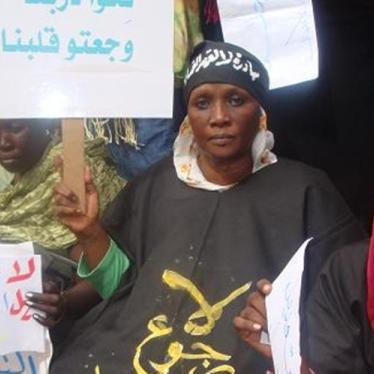Friday, 1 April 2016
Good Girls Don,t protest(War on Women and Girls )
Sudan has a long record of stifling dissent by targeting activists for specific abuses, such as beatings, arbitrary arrests, unlawful detentions, ill-treatment in detention, interrogation for long hours, and intrusive government surveillance. The government also restricts freedom of expression, assembly and association by censoring or confiscating newspapers, harassing civil society organizations, and using lethal force to break up protests and demonstrations.
While these patterns of repression are well-documented, scant attention has been paid to the toll of this repression on women activists and human rights defenders. Yet, as popular protests and civil society activism by women has increased, so too have reports of abuses and repression against them. As this report shows, women involved in protests, rights campaigns, social services, legal aid, and journalism, and other public action have been targeted for a range of abuses, and operate in a wider context of gender inequality that makes their activism all the more challenging.
Based on interviews with more than 85 female activists and human rights defenders in Sudan’s urban centers, this report documents the patterns of abuse women experience at the hands of government security forces and the restrictive environment in which they work. It describes how women activists and human rights defenders face an array of abusive practices their male colleagues are less likely to have to contend with – from sexual violence to the deliberate efforts of security personnel to tar their reputations in ways that can cause lasting social and professional harm.
These abuses reflect, or are made worse by, the wider context of gender inequality in Sudanese society and the laws that institutionalize it. Vaguely defined public morality crimes discriminate against women in Sudan, proscribing their manner of dress, limiting their movement and role in public life, and imposing humiliating corporal punishments of lashing and stoning, in violation of international norms. The cases described in this report also highlight the broader problem of entrenched impunity for human rights abuses women face, including sexual violence.
Sudanese activists lack protection as well avenues to remedy or assistance, especially victims of sexual violence who may be reluctant to report their experiences to others for fear of damaging consequences. While some of the women we interviewed were able to access medical assistance or other support, none obtained legal redress either because they were too afraid to report or because law authorities did not investigate or prosecute the crimes. Many women, traumatized and frightened of future abuse, fled the country, leaving behind close family members. Others remain in Sudan, but were forced – by pressure from government officials or from their own families and friends – to tone down or stop their activism.
Sudan is due to adopt a new constitution following a contentious and long-awaited national dialog process, which officially started in October 2015 despite the absence of key opposition parties. Any new constitution should include full protections for human rights and women’s rights, and reform of repressive laws and institutions, including the national security service, public order codes, and provisions in the criminal law that discriminate against women.
Sudan should lift restrictions on expression and association, and allow civil society, including female human rights activists, to demonstrate peacefully and engage in public action and discourse. Authorities should instruct security forces to stop targeting activists and end all abuses, including sexual and gender-based violence, and hold accountable those responsible. They should cease using the criminal code and public order regime to silence or restrict activists. And they should also address the longstanding obstacles to justice for victims of rape and other sexual violence.
Sudanese civil society organizations should coordinate support for human rights defenders and activists at risk, and help them to obtain legal, medical and psycho-social services when needed. International donors and partners should assist these efforts, and help build capacity of Sudanese human rights defenders to protect themselves, especially those living in rural areas or in Sudan’s conflict zones where they have little access to protection or legal or medical services.
Finally, United Nations (UN) and African Union (AU) rapporteurs on human rights defenders should increase their engagement on Sudan, and conduct visits to investigate and report on patterns of abuse against female activists, including sexual violence against them and the adverse impacts on their work of gender inequality in Sudan.
Courtsy of www.hrw.org
Subscribe to:
Post Comments (Atom)

No comments:
Post a Comment